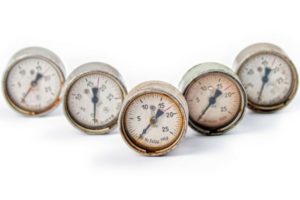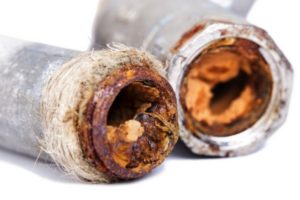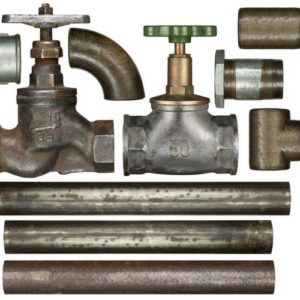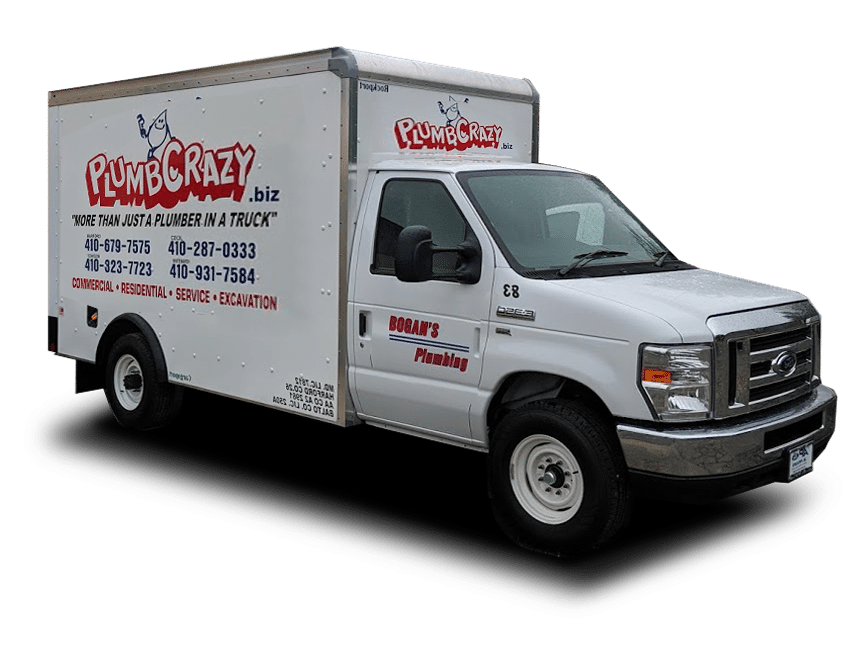A water leak may seem to be a minor problem, but it's one that can have devastating consequences. If a leak goes undetected for a long period of time, the damage can be extensive and pricey to fix. On top of that, water consumption will increase and impact utility costs.
Homeowners in Abingdon, MD may feel lucky they can call a plumber to conduct water leak detection, but is there a way to avoid the problem altogether? It's possible to take preventive measures, but before doing so, it's important to understand some of the causes of water leaks. Here's a comprehensive guide to water leaks, and why they happen.
Increased Water Pressure
 High water pressure isn't always a good thing, and in some cases can be bad for your plumbing system.
High water pressure isn't always a good thing, and in some cases can be bad for your plumbing system.
Water rocketing through your pipes can add a large amount of strain and increase the chances of a burst or leak.
In addition, every faucet and fixture in your home is only designed to endure a certain amount of pressure. If this level is exceeded, it could affect their functionality. Talk to an expert if you think you might be getting a bit too much water pressure.
Disintegration and Rust
 After years of heavy use, water pipes may be subject to corrosion and decay.
After years of heavy use, water pipes may be subject to corrosion and decay.
Depending on what material the pipes were made from, it could impact their integrity and increase the chances of a leak.
Take a look at your pipes. If you notice any of them are warped or discolored, it's probably a good idea to contact a plumbing technician.
Rusty pipes can also spell trouble if there's any mineral buildup. This can eventually lead to blockages, which can cause all sorts of problems such as leaks.
Aged Water Pipes
 Similar to every home appliance, water pipes have a limited life expectancy. They can become more susceptible to damage and leaks after years of wear and tear. Any substances caught within the pipes can also build up over the years, which can lead to clogs that increase water pressure and the strain to a plumbing system.
Similar to every home appliance, water pipes have a limited life expectancy. They can become more susceptible to damage and leaks after years of wear and tear. Any substances caught within the pipes can also build up over the years, which can lead to clogs that increase water pressure and the strain to a plumbing system.
Most unfortunately, these pipes can lead you to have poor water quality. Believe it or not, the quality of the water running through your pipes can impact a home's plumbing. Contaminants can leave behind substances that corrode your pipes or eventually build up to create blockages.
Even the minerals found in hard water, which is safe to drink, can accumulate and result in residue buildup throughout your system. Homeowners can help maintain appliances and pipes by installing a water filtration system or water softener. This may increase the lifetime of your pipes and make the need for repairs less frequent
If disaster strikes, you can always call for water leak repair service to stem the damage, but it's always best to be prepared before anything happens. Don't hesitate to call a plumber if you're worried about things like water pressure, corroding pipes or water quality. They will perform an inspection and make suggestions about how to maintain your plumbing system. It may help save you down the line.



